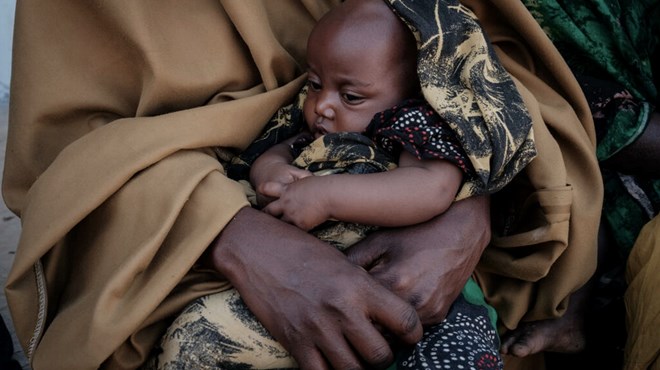The UN warned on Wednesday that it is running out of money to combat Somalia’s terrible drought, which has been “overshadowed” by other humanitarian crises such as the conflict in Ukraine.
Drought has ravaged the fragile Horn of Africa nation, affecting 4.5 million people (almost 30% of the population) as of February, following three seasons of weak rains.
However, the UN has only obtained 3% of the $1.46 billion (1.23 billion euros) needed to address Somalis’ needs, according to Adam Abdelmoula, the UN humanitarian coordinator for Somalia, who spoke at a press conference in Nairobi, Kenya’s capital.
“The situation is critical and rapidly deteriorating,” he stated.
“Prior to the commencement of the Ukraine conflict, the prognosis was already bleak. The crises in Tigray, Yemen, and Afghanistan have cast a pall over us, and now Ukraine appears to be sucking up all the air in the room “Added he.
“I’m worried to death.”
Around 671,000 individuals have been forced to evacuate their homes in search of water, food, or pasture for their cattle, up from 245,000 in December.
Natural disasters, rather than fighting, have been the main drivers of displacement in Somalia in recent years, a war-torn country that ranks among the world’s most vulnerable to climate change.
The problem, however, has struggled to acquire traction in the international community, according to Abdelmoula.
“Last year, in an effort to put Somalia back on the map, I visited numerous countries, including five European capitals and Washington, DC,” he stated.
“We have, as we say in the humanitarian field, lost the CNN effect.”
Ethiopia, Kenya, and Somalia are all suffering from a months-long drought, which will be exacerbated by a locust invasion between 2019 and 2021, as well as the Covid-19 epidemic.
“According to projections, the following rainy season, which begins in April, will be below average as well. By June, if we don’t act now, we may find ourselves in a dire scenario “Abdelmoula issued a warning.
“The price of delay or inaction is simply too high.”
In 2017, early humanitarian efforts in Somalia averted a famine, in stark contrast to 2011, when 260,000 people died of starvation or hunger-related diseases, half of whom were children under the age of six.

